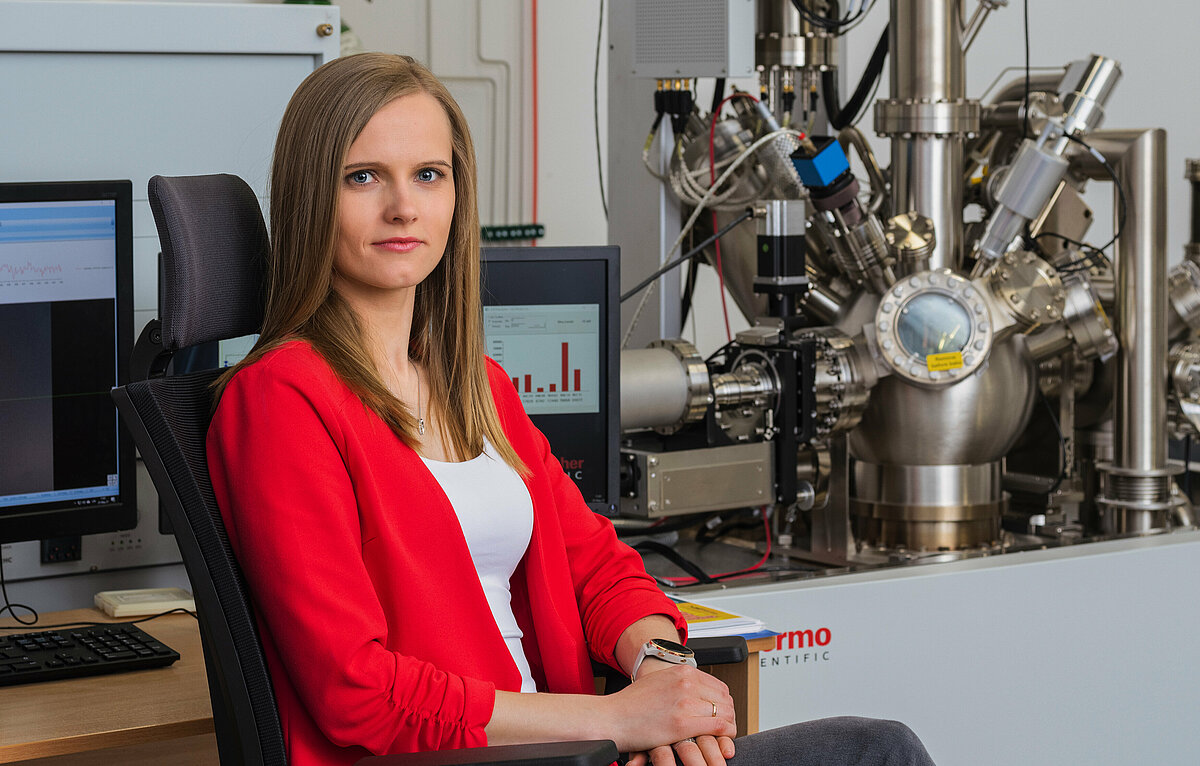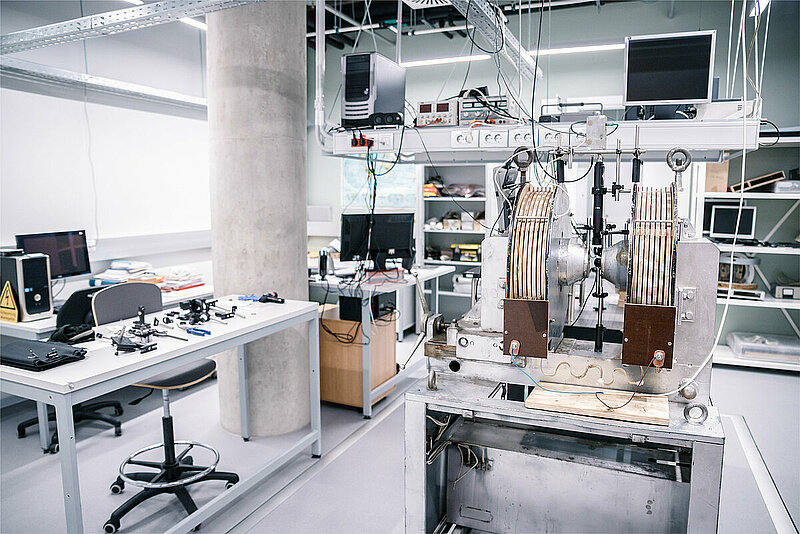
In Latvia’s current heat wave, you don’t need a PhD to tell you to go to the beach. But for sensitive goods, knowing they are kept at a safe temperature is trickier than feeling sweat on your brow.
Inga Pudža, a researcher assistant at the University of Latvia’s Institute of Solid State Physics EXAFS Spectroscopy Laboratory and University of Latvia Scholarship "Mikrotīkls" reciever, is working on just such a solution. She is studying molybdate, a copper compound which changes colour at extreme temperatures and could potentially tell shippers of vaccines, medicines and food if their cargoes might have been a little too warm or cool.
“It’s like an indicator that the product has been outside its comfort zone and may be spoiled,” says Inga.
Copper molybdate is a cheap and common material, which in addition to being thermo-chromatic is also responsive to pH levels and pressure and has antibacterial properties. As part of her doctoral thesis, Inga bombards samples of molybdate powder with X-rays, then analyses the behaviour of the atoms. She then travels to France, Germany, Italy or Sweden to conduct week-long experiments in large accelerators (synchrotrons), returning to Riga with plenty of datafor analysisand modelling on a super computer.All of this is aimed at understanding why the material changes its colour and how to adapt it to get the desired characteristics.
At present, this is fundamental research without a specific commercial client. But Inga believes it could be used as an additional verifying agent, or incorporated into sensors as a new technology. It would be cheaper than electronic devices, which can also malfunction due to dead batteries or other technical problems, and more durable than organic materials, which are not stable atvery high temperatures.
Inga was born in Daugavpils, and her mother, a science lecturer at Daugavpils University, was an excellent role model. And she had a passion for the hard subjects many of us shrink from at an early age.
“I was good at science at school, and I loved maths,” says Inga. “For me it was like doing crossword puzzles, and the more problems they gave me to solve, the better!”
She went on to study physics at the University of Latvia, where women were not a small minority. Hard science is tough regardless of gender, and the dropout rate from bachelor’s to master’s to PhD level is acute. And a career in science is not an easy path. Doctoral candidates are continuing their education long after their peers in IT already have established careers. Fortunately, she adds, science is never boring and brings many other rewards.
There are funds available for the best and brightest Latvian students. Inga obtained a stipend from the Vītolu Fund for her bachelor’s degree. During her master’s and doctoral studies, she was supported by the University of Latvia Foundation and Latvian tech firm MikroTik.
While still a bachelor student, she started working at EXAFS spectroscopy laboratory, which provides a stable and exciting working environment where she can continue her research. She also expresses her gratitude to her doctoral thesis supervisor Aleksejs Kuzmins.
“There is this stereotype that women can’t make it in physics, but there are many examples of talented women who have also found their way into the field, and the L’Oréal Baltic program “For Woman in Science” raises their profile,” she says.
The experiments at the European accelerators cost in the hundreds of thousands of euros, made possible thanks to European Union science funding. And in this international arena, there are also opportunities for young Latvians to work abroad. There are many postdoctoral positions available.
However, 28-year-old Inga has just gotten married, and she has no plans to leave Latvia.
“I’m very happy with everything here,” she says. “I can still challenge myself and enjoy short-term experience abroad.”

 Academic Centre
Academic Centre